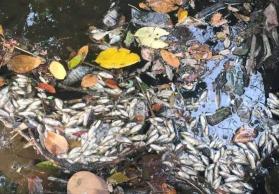Now Serving the Pueblo: The National Literacy Program
For generations, the poor and working class in El Salvador have been denied an adequate education. Gloria, the mother of Janette, one of the authors of this article and member of the CISPES chapter at the University of California Santa Cruz is a perfect example. Gloria dropped out of school before she finished the second grade in order to take care of her father and five brothers. She never had the opportunity to go back. Unfortunately, Gloria is not alone in in this situation; according to the United Nations only around 55% of children in El Salvador attend secondary school. From the most recent census taken in 2007, there were 682,399 people in El Salvador age 15 and over, who could not read at the second grade level. The Ministry of Education, now headed by long-time FMLN leader and Vice-President of El Salvador Salvador Sánchez Cerén, has recently taken this problem head-on by launching a nationwide literacy program. One of the primary goals of the Literacy Program is to reduce the level of illiteracy from a rate of 18% in 2009 to 4% by 2014. This would put El Salvador on par with Costa Rica as having one the highest literacy rates in Central America. The Salvadoran literacy program is based on the effective model implemented in Cuba, which has the second highest literacy rate in the world. Mass literacy campaigns inspired by Cuba have been carried out in Nicaragua, Venezuela, and Timor-Leste (East Timor). The Salvadoran program maintains Cuba’s successful alphanumeric methodology, which is designed to build confidence in adult learners but varies in the use of images and themes to reflect the daily lives of Salvadorans. Like the Cuban program, the Salvadoran literacy program is carried out by volunteers, mostly students and anyone interested in volunteering can participate. Last year, over 16,000 volunteer teachers from diverse backgrounds lead “literacy circles,” small groups of five to ten adult students who meet for daily lessons over the course of six to eight months. One unique feature of the Salvadoran literacy program is that it can be taught over the radio, which makes it more accessible to participants in very rural areas or who have limited mobility. ARPAS, the network of community radio stations is committed to transmitting the daily lessons to students who are studying from home. The program has been highly successful thus far; in December 2011 Sánchez-Cerén announced that there were over 63,000 people participating in the literacy circles. As of February 2012, four municipalities, Comacarán (San Miguel), San Francisco Lempa and Azacualpa (Chalatenango) and Jocoaitique (Morazán) were declared free of illiteracy. Like many initiatives of the FMLN-led ministries to meet the needs of the majority, the Literacy Program represents a very significant change. Under the previous right-wing governments, education was never a priority. The literacy program represents a perfect example of the Salvadoran revolution in progress, not only because education is a priority for the success and development of any revolutionary project, but also because the program urges the collaboration and involvement of all citizens in creating socially engaged communities. For these reasons, the Minister of Education has described the program as “un programa de amor, de solidaridad” (“a program of love and solidarity”). Unsurprisingly, the right-wing political parties, and their friends in the media, have attacked the program from the outset, accusing the Ministry of Education of brainwashing the population into communism. In a 2009 debate concerning a proposed national literacy law, Margarita Escobar, from the right-wing ARENA party, said the project was “totalitarian” and sought to “control the population” through ideology. With fierce opponents and a limited budget, the success of the program relies on the solidarity of the people of El Salvador and the international community. For example, the program’s budget only allows for one recruitment team, which has the whole country to cover! The Ministry of Education has called for international support – from the donation of CD players for teachers in very remote areas to learn the curriculum to the direct participation of international allies as recruiters and teachers. CISPES has heeded that call and is organizing a three week brigade (June 23 to July 17) to assist in the effort. Students from the UC Santa Cruz, led by the authors, are organizing a class that will participate in CISPES’ brigade. This summer’s brigade is an amazing opportunity for everyone to make a difference by working in solidarity with the people of El Salvador to provide thousands of individuals like Gloria a second chance to pursue an education.¡Educación para todas!

 "I am a CISPES supporter because continuing to fight for social justice and a more people-centered country means continuing the dream and sacrifice of thousands of my fellow Salvadorans who died for that vision.” - Padre Carlos, New York City
"I am a CISPES supporter because continuing to fight for social justice and a more people-centered country means continuing the dream and sacrifice of thousands of my fellow Salvadorans who died for that vision.” - Padre Carlos, New York City

